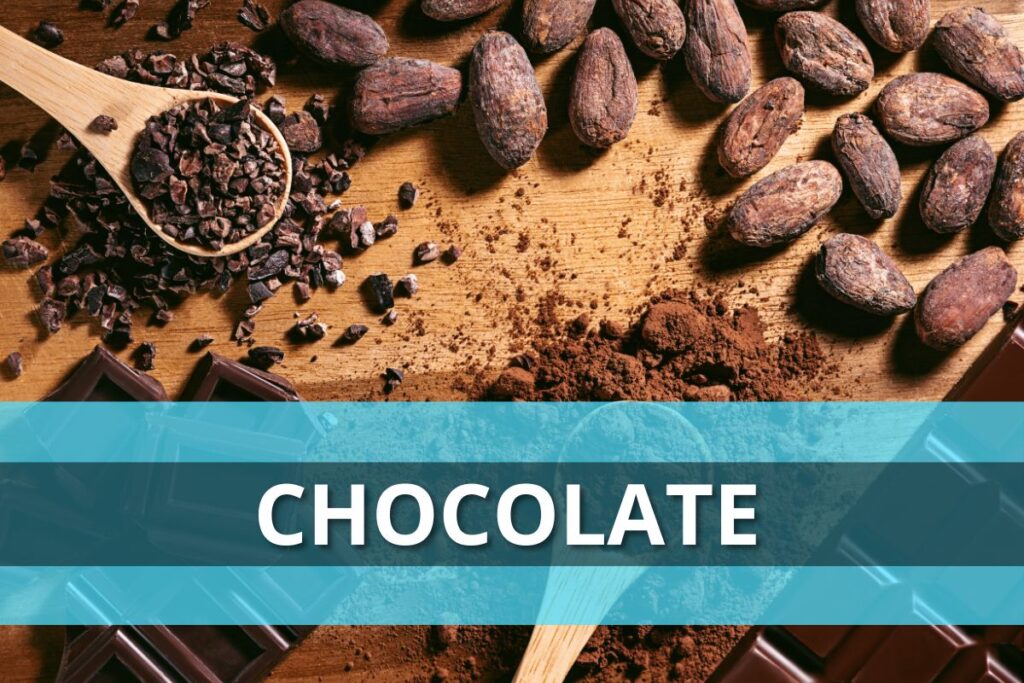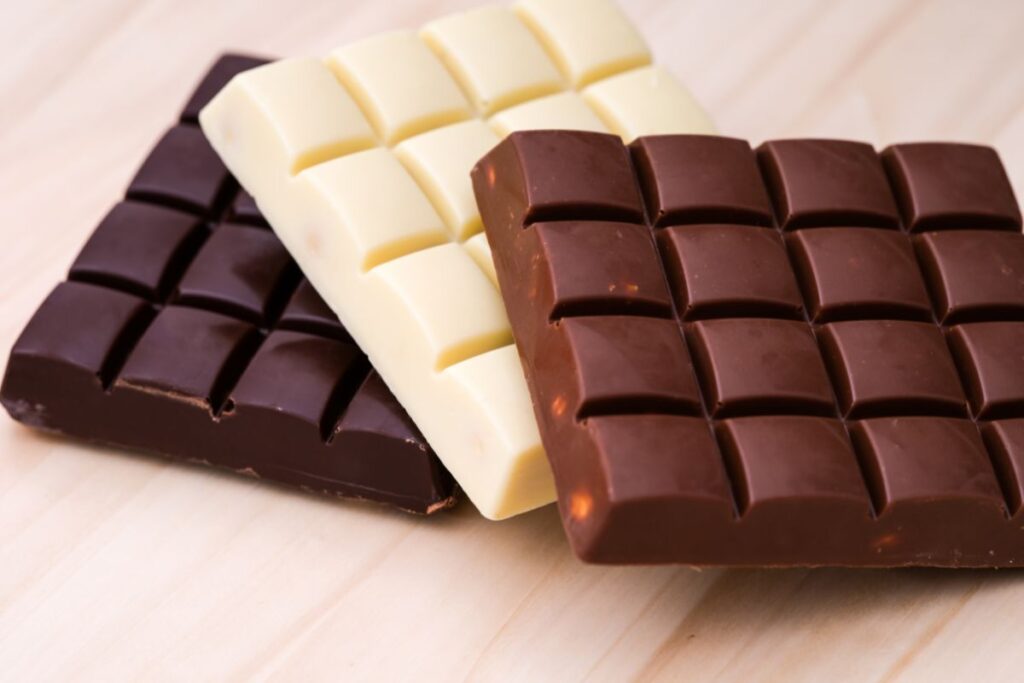Chocolate
Author:
Unlock your full potential by engaging with our experts and community! Have questions about your fitness journey or looking for expert advice on weightlifting techniques? Don’t hesitate — leave a comment below and Sergii Putsov will provide a personalized answer and insights to help you reach your goals.
Torokhtiy is reader-supported. Some links are affiliate links, and we may earn a commission at no extra cost to you. See our disclosure page for details.

According to what can be read online, something tasty cannot be useful. But these words have nothing to do with chocolate! Read about its benefits in this article.
Chocolate is a mystical product that even a child loves. But a wild mix of fat and sugar always raises questions about its health benefits. Unambiguously, dark chocolate (80% and above) without additives contains a lot of useful substances and stuff as well as cocoa butter. Many of them serve as antioxidants.
And the higher the percentage of cocoa – the less sugar and the more benefits. In addition to positive effects on blood vessels and cardiovascular health, dark chocolate affects the state of the brain and improves cognitive skills. Also, dark chocolate moderate consumption in diabetics affects the carbohydrate metabolism improvement.
Overweight people, who stick to the typical American diet (SAD) and use black chocolate along with almonds and separately, normalize cholesterol levels.
You may like it:
There are lots of other black chocolate useful properties that one should keep in mind:
- the bioactive components presence in cocoa leads to the decrease in weight and visceral fat – this is important to consider for athletes who would like to eat sweets and stay in shape;
- appetite suppression, dark chocolate normalizes the hunger hormone;
- ghrelin.

Permanent black chocolate lovers, that consume it on a daily basis, have a lower fat mass than those who eat it a lot and only once a week. This is most likely associated with a decrease of the desire to consume other “harmful” products and satisfaction with the diet in general.
Dark chocolate should become an athlete’s healthy diet integral component, because it increases efficiency and endurance during the training process by increasing nitric oxide. You must add at least 30-40 grams of dark chocolate on the day you train.
In order to choose a good chocolate, one should pay attention to its composition. Ideally, it should consist of 3-4 components: cocoa butter, cocoa powder, sugar and lecithin. Special attention should be paid to the trans fats presence in chocolate, which, with constant use, causes harm to the body.
The bigger percentage of cocoa, the less there is sugar in it. For example, chocolate 99% contains only 8 grams of carbohydrates per 100 g. It’s impossible to eat more than a couple of pieces of it, but you don’t even want more. In addition, 100 grams of dark chocolate contain 11 grams of fiber, magnesium, iron, copper, zinc and other essential trace elements for the body to work properly. It is worth remembering that if you have individual sensitivity to any product’s components, it should be minimized in your diet.
Train together – train right
You might be interested in:
Why Trust Us?
With over 20 years in Olympic weightlifting, strength training, nutrition coaching, and general fitness our team does its best to provide the audience with ultimate support and meet the needs and requirements of advanced athletes and professional lifters, as well as people who strive to open new opportunities and develop their physical capabilities with us.
By trusting the recommendations of our certified experts in coaching, nutrition, and sports training programming, as well as scientific consultants, and physiotherapists, we provide you with thorough, well-considered, and scientifically proven content. All the information given in the articles concerning workout programming, separate exercises, and athletic performance, in general, is based on verified data.
The product testing process is described in more detail here.
Author: Sergii Putsov
Head of Sport Science, PhD
Best Results: Snatch – 165 kg,
C&J – 200 kg
Sergii Putsov, Ph.D., is a former professional weightlifter and National team member, achieving multiple medals in the 94 kg weight category at national competitions. With a Master’s degree in “Olympic & Professional Sport Training” and a Sport Science Ph.D. from the International Olympic Academy, Greece, Sergii now leads as the Head of Sport Science. He specializes in designing training programs, writing insightful blog articles, providing live commentary at international weightlifting events, and conducting educational seminars worldwide alongside Olympic weightlifting expert Oleksiy Torokhtiy.




Still have questions after reading our article? Unlock your full potential by engaging with our experts and community! Don’t hesitate — leave a comment below and Sergii Putsov will provide a personalized answer and insights to help you reach your goals.